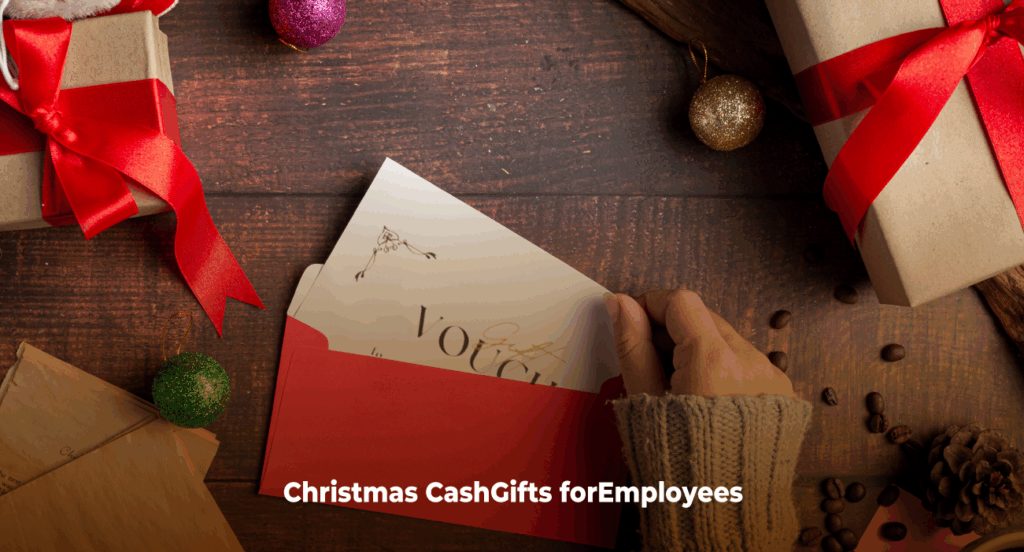How Christmas Gifts and Office Parties Affect Your Tax
As the year draws to a close and offices across Australia begin gearing up for the festive season, business owners are turning their attention from work targets to Christmas parties, client gifts, and staff bonuses. November and December mark not just the busiest time of year socially, but also a key period for Fringe Benefits Tax (FBT) and deduction planning.
While the celebrations are well deserved, it’s easy to overlook how the cost of those lunches, hampers, and rewards can affect your tax position. Whether you’re planning a Christmas party for employees, a dinner with clients, or festive gifts for your team, understanding how FBT and income tax rules apply can help you celebrate smartly — and keep your tax bill in check.
This article unwraps the tax implications of Christmas gifts and entertainment for the 2026 FBT year, offering practical strategies to stay compliant while making the most of your festive spending.

Are client and customer Christmas gifts tax deductible in 2025?
Businesses can generally claim an income tax deduction for gifts provided to clients or customers if the gifts are given with the intention of generating future business income. These expenses are typically considered part of normal business operations aimed at producing assessable income, and they are not subject to fringe benefits tax.
However, if the gift involves entertainment—such as movie tickets, concert passes, or sports events—it will not attract fringe benefits tax, but it also will not qualify for an income tax deduction or goods and services tax credits. To remain both generous and compliant, businesses should focus on non-entertainment gifts such as hampers, wine, or branded items, which are generally deductible and provide the best tax outcome for the 2026 fringe benefits tax year.

Are Christmas gifts for employees’ tax deductible?
Christmas is a season of appreciation, and many Australian businesses continue the tradition of showing gratitude to their employees with thoughtful gifts or hampers. Whether it’s a retail gift card, a festive basket, or even tickets to an event, these gestures help boost morale and strengthen workplace culture. However, before wrapping those presents, it’s important to understand how the fringe benefits tax applies, as the tax outcome depends on both the type and value of each gift.
Unlike meal entertainment, non-entertainment gifts such as hampers, retail gift cards, or store vouchers are generally not treated as entertainment expenses. These items are typically subject to fringe benefits tax unless they qualify for the minor benefits exemption.
For instance, if a business gives each employee a Christmas hamper valued under $300 and the gift meets the minor benefits exemption criteria, it will not be subject to fringe benefits tax. In addition, this expense can be claimed as a tax deduction and may allow for goods and services tax credits.
Entertainment gifts, on the other hand, include experiences such as movie tickets, concert passes, or sporting event entries. Even if these gifts cost less than $300, they are considered entertainment benefits and therefore are not tax-deductible and do not attract goods and services tax credits, though they may still be exempt from fringe benefits tax under the minor benefits rule.
When assessing obligations, employers should separately record the cost of meal entertainment, such as the Christmas party, from any gifts provided during the event. Although each expense might qualify for the minor benefits exemption individually, the combined value and frequency should be reviewed to ensure it remains reasonable to apply the exemption for the 2026 fringe benefits tax year.

Christmas cash gifts for employees
During the 2025 festive season, many businesses consider rewarding their teams with a cash bonus or Christmas gift. While this gesture is generous, it is important to understand that cash gifts are treated as salary or wages, not as fringe benefits. As a result, they are subject to pay as you go withholding, and employers must withhold income tax from the payment in the same way they would from regular wages.
Cash gifts are also included in superannuation guarantee calculations, requiring the employer to contribute a percentage of the payment to the employee’s superannuation fund. This makes cash gifts more expensive for employers than non-cash gifts, as they attract both income tax and superannuation obligations.
For many small business owners, a non-cash alternative such as a gift card, hamper, or a minor benefit under $300 may provide a more tax-efficient option for the 2026 fringe benefits tax year. These alternatives often allow for better deductibility and avoid the payroll implications that come with direct cash payments.

Christmas Parties – What’s Deductible and What’s Not?
Christmas and holiday parties remain a highlight of the year for many workplaces — a time to relax, reflect, and celebrate team achievements. Some businesses are already locking in 2025 Christmas parties at rooftop venues or fine-dining restaurants, while others are opting for simpler, more intimate gatherings at the office. Whatever your approach, there’s more to plan than just food, drinks, and music — the tax treatment of your celebration matters too.
Understanding the Fringe Benefits Tax (FBT) and deduction rules around staff functions can help you avoid surprise costs and make your event both memorable and tax efficient. Below, we outline the key considerations to ensure your 2025 celebration spreads joy — not tax headaches.
- FBT Exemption for On-Site Parties: For the 2026 FBT year (1 April 2025 – 31 March 2026), costs related to Christmas parties — such as food, drinks, and decorations — may qualify for the property benefit exemption if the event is held on a working day at your business premises and attended exclusively by current employees.
This exemption applies only to employees; benefits provided to their associates, such as partners or children, are not covered and may attract FBT.
Hosting your 2025 Christmas party at the office on a regular workday is one of the simplest and most effective ways to avoid FBT altogether. It allows you to celebrate with your team and reward their hard work without triggering additional tax obligations, regardless of the amount spent per person. - Tax Deductibility of Party Expenses: For the 2026 fringe benefits tax year, the cost of hosting a Christmas party is only deductible to the extent that it is subject to fringe benefits tax. If the expense qualifies for an exemption, such as a minor benefit or a property benefit exemption for an on-site event, it will not be eligible for an income tax deduction or goods and services tax credits.
While an exempt party helps you avoid fringe benefits tax, it may not provide any deduction benefit. Understanding this balance allows you to plan a celebration that remains both compliant and cost-effective. - Claiming Deductions for Extravagant Parties: If your business hosts a more extravagant Christmas party that exceeds the $300 per person minor benefit limit, it may incur FBT. However, this also provides an opportunity to claim a tax deduction and GST credits on the full cost of the event, which can help offset the expense. By balancing the benefits of a memorable celebration with the potential tax deductions, businesses can make the most of their holiday spending.

Tax Treatment of Entertainment in a Glance
| Less than $300 | $300 or more | |||
| Location | On-site | Off-site | On-site | Off-site |
| Employee | Exempt from FBT:Minor benefit Exempt property benefitNo tax deduction or GST input tax credit available | Exempt from FBT:Minor benefitNot an exempt property benefitNo tax deduction or GST input tax credit available | Exempt from FBT:Not a minor benefitExempt property benefitNo tax deduction or GST input tax credit available | Subject to FBT:Not a minor benefitNot an exempt property benefitTax deductible and GST input tax credit available |
| Associate | Exempt from FBT:Minor benefitNot an exempt property benefit No tax deduction or GST input tax credit available | Subject to FBT:Not a minor benefitNot an exempt property benefitTax deductible and GST input tax credit available | ||
| Clients | Not subject to FBTNo tax deduction or GST input tax credit available | |||
Source – The Tax Institute
General Advice Warning
The material on this page and on this website has been prepared for general information purposes only and not as specific advice to any particular person. Any advice contained on this page and on this website is General Advice and does not take into account any person’s particular investment objectives, financial situation and particular needs.
Before making an investment decision based on this advice you should consider, with or without the assistance of a securities adviser, whether it is appropriate to your particular investment needs, objectives and financial circumstances. In addition, the examples provided on this page and on this website are for illustrative purposes only.
Although every effort has been made to verify the accuracy of the information contained on this page and on our website, Investax Group, its officers, representatives, employees and agents disclaim all liability [except for any liability which by law cannot be excluded), for any error, inaccuracy in, or omission from the information contained in this website or any loss or damage suffered by any person directly or indirectly through relying on this information.





